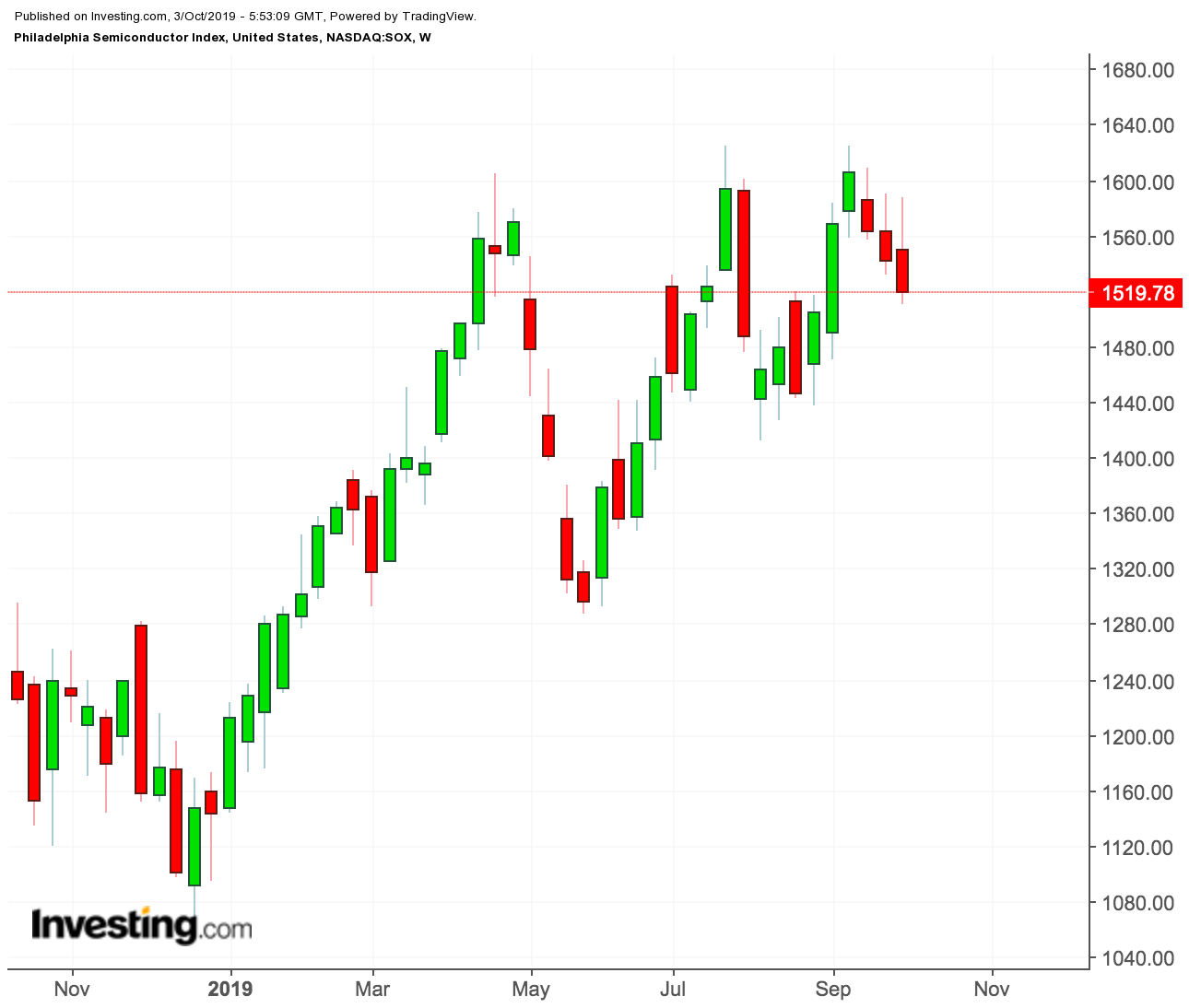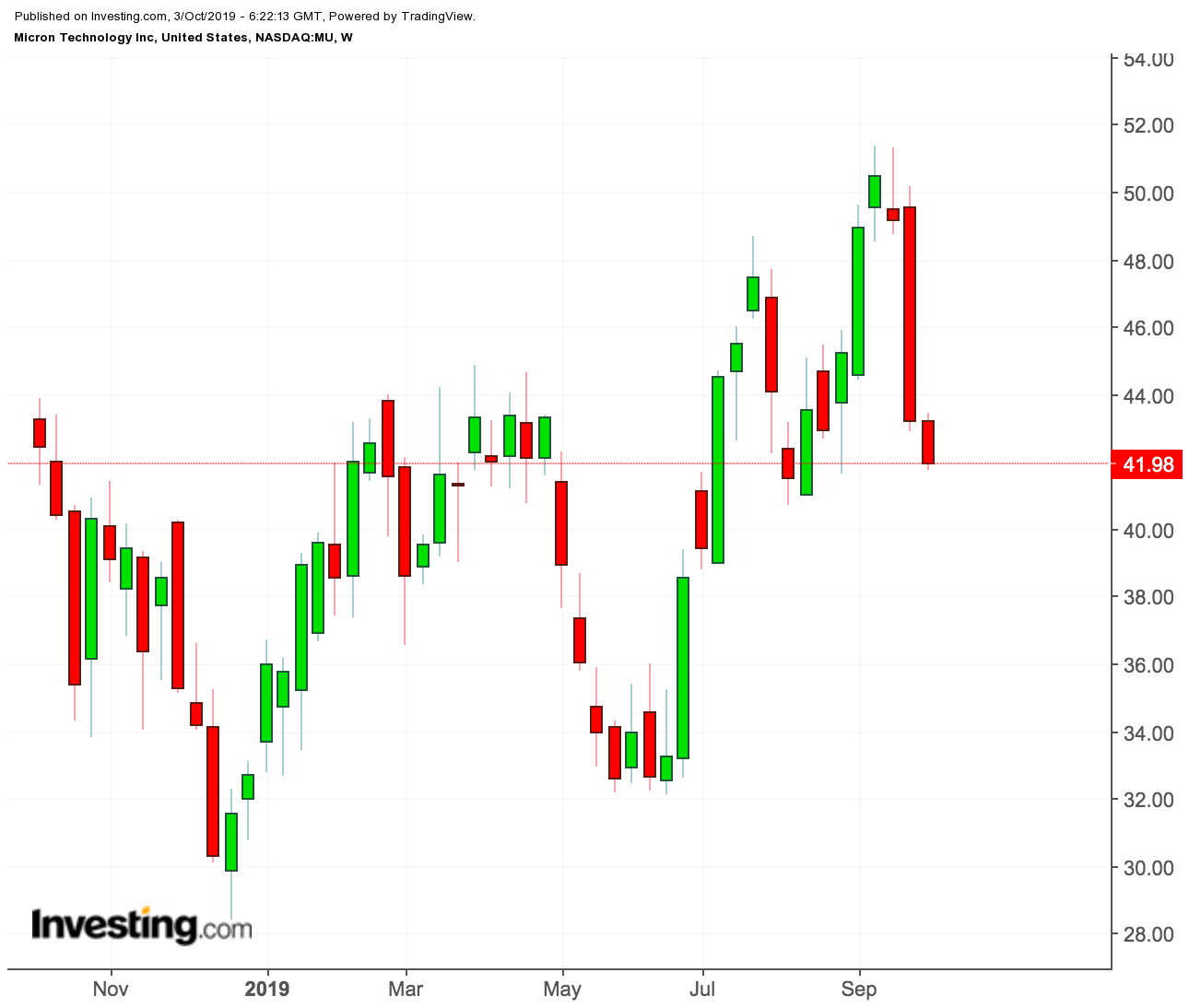There's been a stark mismatch between the strong rally in semiconductor stocks and overall market conditions this year. Defying concerns about surging inventory levels and the U.S.-China trade war, chip stocks have continued their steady upward progress. At least, until recently.
The Philadelphia Semiconductor Index, the benchmark for the industry, has gained 32% this year, even after accounting for 3.8% decline during the past five trading days. That surge is still about double the expansion in the S&P 500 Index (+16%) during the same period.

But that period of strength is about to come to an end, in our view, given the context of a still-weak demand outlook for companies which make chips for computers, cell phones, the gaming industry, and data centres.
The shares of Micron Technology Inc (NASDAQ:MU), that were up more than 60% until mid-September, have tumbled 14% in the past five trading days, showing the nervousness among investors.

Further evidence of this weakness came from an industry leader Broadcom Inc (NASDAQ:AVGO) last month when the company reiterated a muted demand forecast for the rest of the fiscal year.
“We believe demand has bottomed out but will continue to remain at these levels due to the current uncertain environment,” Chief Executive Officer Hock Tan said in a statement, dimming hopes for a sharp recovery in the second-half — which were based on an optimistic scenario that many bulls have built in their valuations, focused on 2020 when 5G phone roll-out is expected to gain pace and fuel chip sales.
Economic Woes
Broadcom’s warning is very important for investors because the San Jose, California-based company has one of the most expansive product lines in the industry. The chipmaker sells components to the world’s largest cell phone makers, including Apple Inc (NASDAQ:AAPL). It’s also one of the major suppliers of networking components used by large data center operators.
One big uncertainty for chip companies comes from the overall outlook of the global economy as the demand for chips is closely tied with global growth. Recent economic data suggests that the slowdown in the U.S. manufacturing sector is deepening, meaning it will be tough for the U.S. and the global economy to avoid a recession. If that happens the rally in chip stocks could unravel quickly.
Total semiconductor sales declined about 15% on a year-over-year basis in July, according to reports from industry analysts, who cited data from the Semiconductor Industry Association. That followed a drop of 17% in June, and May’s 15% decline.
David Wong, a Nomura Instinet analyst, citing the July data, questioned those who are seeing a quick recovery in demand.
“We remain deep in a semiconductor downturn,” wrote Wong, in a note to clients last month. The report “is in line with the muted forward guidance given over the last six weeks by several chip companies that we consider to be broad indicators for many chip end markets.”
Bottom Line
Investing in chip stocks just doesn’t make sense at the moment, especially when threats to their growth haven’t fully subsided yet. Any negative development on the U.S.-China trade negotiations, more bad news on the Chinese economic front, and a possible slowdown in U.S. expansion are just some of the headwinds that make avoiding semiconductor stocks in general the wisest course.
